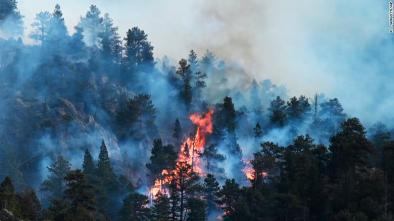Decreasing rainfall frequency contributes to earlier leaf onset in northern ecosystems
Study key findings & significance
- Plants are leafing out earlier than ever in recent decades in northern regions, including the U.S., Europe, and China, due to climate change.
- The researchers attribute the early greening to two key factors: warmer temperatures and fewer rainy days.
- Scientists already knew that warmer temperatures due to climate change had caused plants to leaf out sooner in the year in recent decades, but these new findings show that fewer rainy days are also a big reason why.
Author quotes
“This contrasting effect earlier in the year makes the plants think it is spring and start leaf onset earlier and earlier."
- Jian Wang, co-author and doctoral student at Ohio State University
“Scientists have looked mainly at how temperature affects when leaves first appear and, if they considered precipitation at all, it was just the total amount. But it isn’t the total amount of precipitation that matters the most — it is how often it rains.”
- Desheng Liu, co-author and professor of geography at Ohio State
Abstract
Climate change substantially advances the leaf onset date (LOD) and regulates carbon uptake by plants. Unlike temperature, the effect of precipitation remains largely elusive. Here we use carbon-flux measurements, in situ records of leaf unfolding and satellite greenness observations to examine the role of precipitation frequency (Pfreq, number of rainy days) in controlling the LOD in northern ecosystems (>30° N). Widespread decreases in Pfreq during the past three decades positively contributed to the advance in LOD, possibly due to increased exposure to radiation, exhibiting a dominant control of LOD over ~10% of the area. Lower Pfreq may also enhance chilling at night and warming at daytime, consequently leading to earlier LOD. We further develop a weighted precipitation growing-degree-day algorithm that projected a generally earlier LOD than currently predicted. These results highlight the need for a comprehensive understanding of the impacts of precipitation on LOD, which is necessary for improved projections.
Related Content






